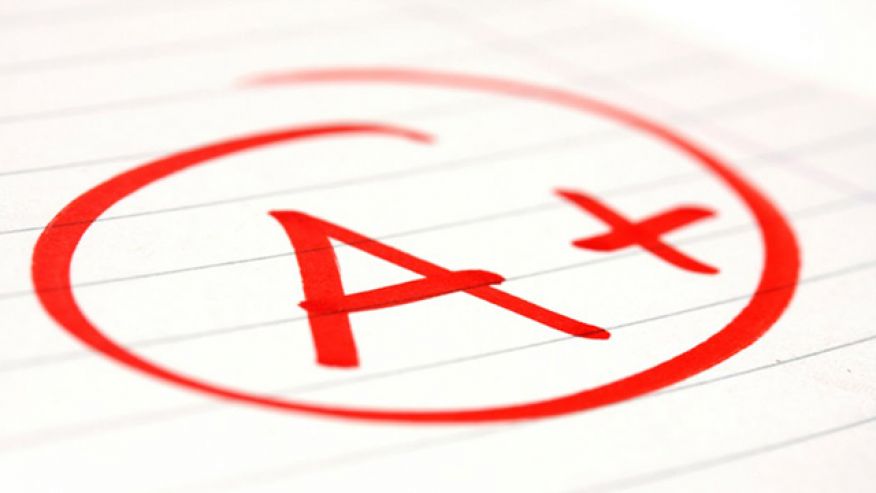I had spent hours the night before reading and rereading my essay due the next day. I checked my sources, scoured the online thesaurus for an elevated vocabulary, and pushed the page in front of my parents to ask their opinion. As I slid my essay into the turn-in box, I was proud of the work I had done and eager to get feedback from my teacher. Two weeks later, my work comes back across my desk. I scored a 95 percent. I’m ecstatic. The day continues on, and talk of grades spread, as they usually do, throughout my classrooms. I keep on hearing 95 percent. He got an A, she got an A. I check Home Access, and sure enough, the average score is a 95. It seems everyone has scored exactly the same.
This is good news. One less thing to stress about and yet another grade boost. Except how am I supposed to know if I earned that A? Was it given to me merely because my teacher felt like going easy on the class as a whole? How is it that the kid sitting next to me, who spent a meager twenty minutes on their less-than-amazing essay has scored the same as the student who toiled away for hours? Even if I did earn the grade I was given, the pride that comes from hard work and success suddenly seems diminished by the fact that top grades are now the norm.
Grade inflation, or the idea that teachers are giving higher grades regardless of the level of academic achievement, is something that has been increasing steadily over the years. From 1990 to 2009, the average high school grade point average (GPA) has increased by 0.33 points for girls, and 0.31 for boys. At first glance, this statistic looks promising. It projects a student population that has begun to work harder and know their curriculum better. However, grade inflation proves that this may not be the case. Instead of working harder for that 0.33 or 0.31 boost, students may just be getting bigger rewards for the same quality of work. Another even more telling statistic has been published in a report done by the ACT and College Board, two companies that run the major college entrance exams. It shows that while GPAs have increased, scores on the standardized ACT and SAT have not. Students are testing the same as they always have, but high school transcripts boast higher grades than ever. Grade inflation is both birthed by and satisfies a student’s desire to get good grades, rather than motivating them to do well and learn the subject.
Grade inflation benefits a lot of students, myself included. I am not saying that it is some horrible disease plaguing our education system. In fact, it can be beneficial at times. During instances where I simply don’t have the time to put in the effort required for truly top notch work, I have been saved by the increasingly lenient nature of my teacher’s red correcting pen. I have gone through science classes upon science classes, a subject of which I am not relatively fond of, and reached the finish line with flying colors. My parents can look upon their straight A student with pride, because in order to achieve the grades that I do, it appears that I must be a hardworking kid. Easier A’s relieve stress from the student put upon them by the new societal standard and parental expectations. More and more students want to go to college, and in this incredibly competitive age, higher grades can make all the difference in admissions. This being said, it just isn’t helping us in the long run. What happens when we enter college, expected to have the knowledge of all those AP courses we took in high school? Will we be able to keep up in an environment not dedicated to ensuring a passing grade?
There is no real solution to grade inflation. In fact, most people would argue that it simply isn’t a problem that needs to be addressed. We will get higher grades, and that’s that. There’s nothing really to complain about. So, rather than call for a stricter grading policy or removal of the ‘Weighted GPA’, I believe that the only solution lies within us, the student. Rather than sit back and accept your higher grades, take your education into your own hands. Learn the material. Know what you are being taught, and what you may be getting yourself into in the future. In this way, you can be proud of your A, and I can be proud of my 95 percent on my essay. We earned it.


